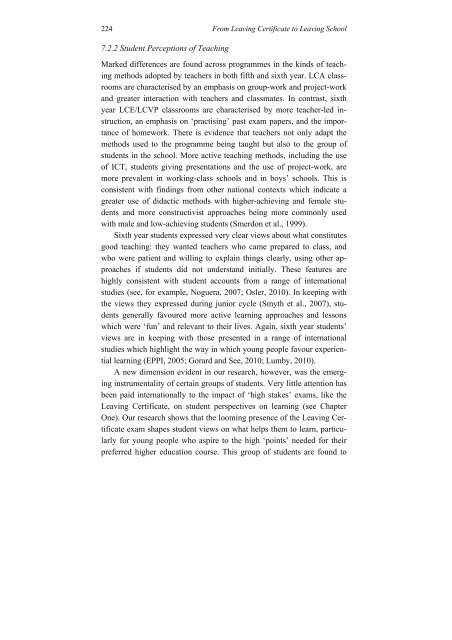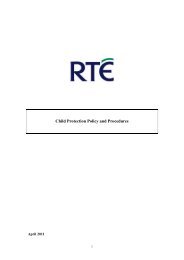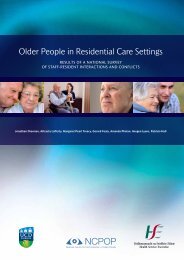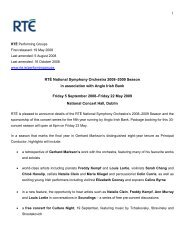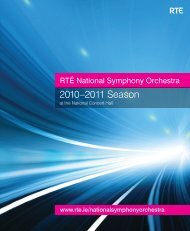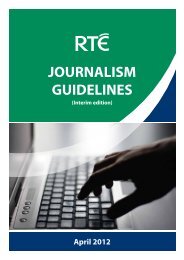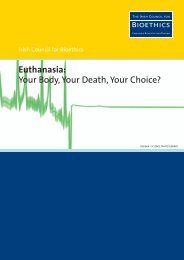From Leaving CertiFiCate to Leaving SChooL a Longitudinal Study ...
From Leaving CertiFiCate to Leaving SChooL a Longitudinal Study ...
From Leaving CertiFiCate to Leaving SChooL a Longitudinal Study ...
Create successful ePaper yourself
Turn your PDF publications into a flip-book with our unique Google optimized e-Paper software.
224<br />
<strong>From</strong> <strong>Leaving</strong> Certificate <strong>to</strong> <strong>Leaving</strong> School<br />
7.2.2 Student Perceptions of Teaching<br />
Marked differences are found across programmes in the kinds of teaching<br />
methods adopted by teachers in both fifth and sixth year. LCA classrooms<br />
are characterised by an emphasis on group-work and project-work<br />
and greater interaction with teachers and classmates. In contrast, sixth<br />
year LCE/LCVP classrooms are characterised by more teacher-led instruction,<br />
an emphasis on ‘practising’ past exam papers, and the importance<br />
of homework. There is evidence that teachers not only adapt the<br />
methods used <strong>to</strong> the programme being taught but also <strong>to</strong> the group of<br />
students in the school. More active teaching methods, including the use<br />
of ICT, students giving presentations and the use of project-work, are<br />
more prevalent in working-class schools and in boys’ schools. This is<br />
consistent with findings from other national contexts which indicate a<br />
greater use of didactic methods with higher-achieving and female students<br />
and more constructivist approaches being more commonly used<br />
with male and low-achieving students (Smerdon et al., 1999).<br />
Sixth year students expressed very clear views about what constitutes<br />
good teaching: they wanted teachers who came prepared <strong>to</strong> class, and<br />
who were patient and willing <strong>to</strong> explain things clearly, using other approaches<br />
if students did not understand initially. These features are<br />
highly consistent with student accounts from a range of international<br />
studies (see, for example, Noguera, 2007; Osler, 2010). In keeping with<br />
the views they expressed during junior cycle (Smyth et al., 2007), students<br />
generally favoured more active learning approaches and lessons<br />
which were ‘fun’ and relevant <strong>to</strong> their lives. Again, sixth year students’<br />
views are in keeping with those presented in a range of international<br />
studies which highlight the way in which young people favour experiential<br />
learning (EPPI, 2005; Gorard and See, 2010; Lumby, 2010).<br />
A new dimension evident in our research, however, was the emerging<br />
instrumentality of certain groups of students. Very little attention has<br />
been paid internationally <strong>to</strong> the impact of ‘high stakes’ exams, like the<br />
<strong>Leaving</strong> Certificate, on student perspectives on learning (see Chapter<br />
One). Our research shows that the looming presence of the <strong>Leaving</strong> Certificate<br />
exam shapes student views on what helps them <strong>to</strong> learn, particularly<br />
for young people who aspire <strong>to</strong> the high ‘points’ needed for their<br />
preferred higher education course. This group of students are found <strong>to</strong>


